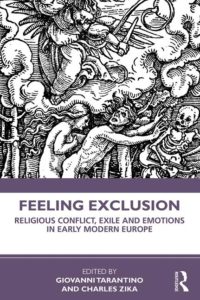39th Annual Conference of the Australian and New Zealand Law and History Society, Auckland, 9-12 December 2020
Revised Call for Papers: “One Empire, Many Colonies, Similar or Different Histories?”
Abstracts are invited from scholars bringing historical perspectives on law who wish to gather at The University of Auckland and AUT University – there to listen to and discuss papers and panels on aspects of law in history.
Since the impact of COVID-19, travel restrictions and university funding deficits, we now also seek expressions of interest from those who may wish to present a paper to a dual format conference or virtual-only conference if either possibility turns out to be feasible.
The 2020 theme invites a comparative lens on British imperial and colonial histories but other law in history topics will be favourably considered. Proposals from postgraduate and early career researchers are welcome. Individual paper proposals and panel proposals must include an abstract (no more than 300 words) and a biographical statement (no more than 100 words per speaker).
All abstracts must be submitted to Karen Fairweather: k.fairweather@auckland.ac.nz by
31 July 2020
See the attached call for papers for more information.

